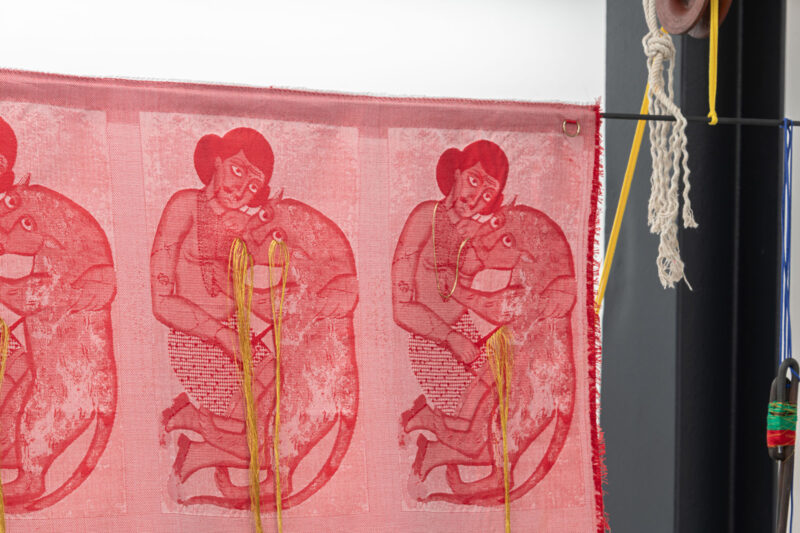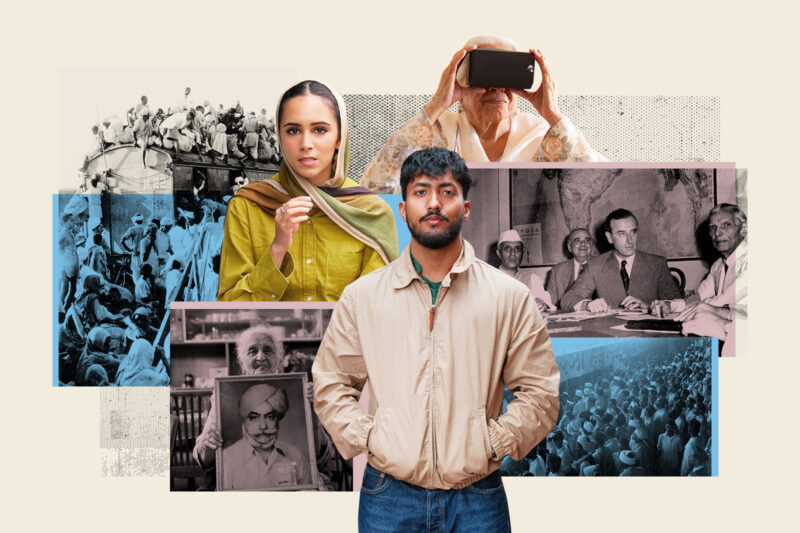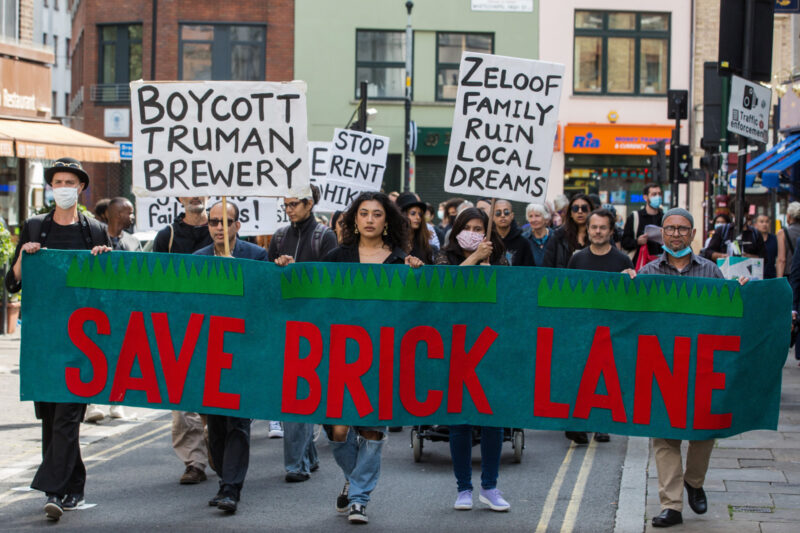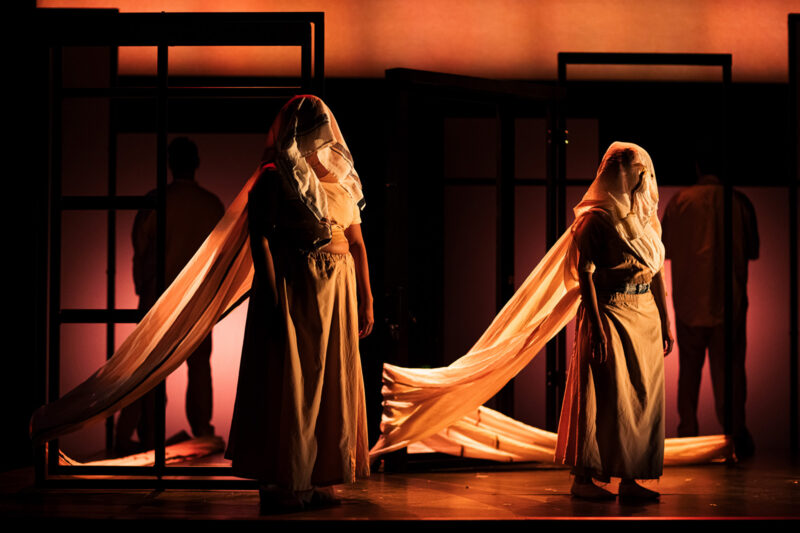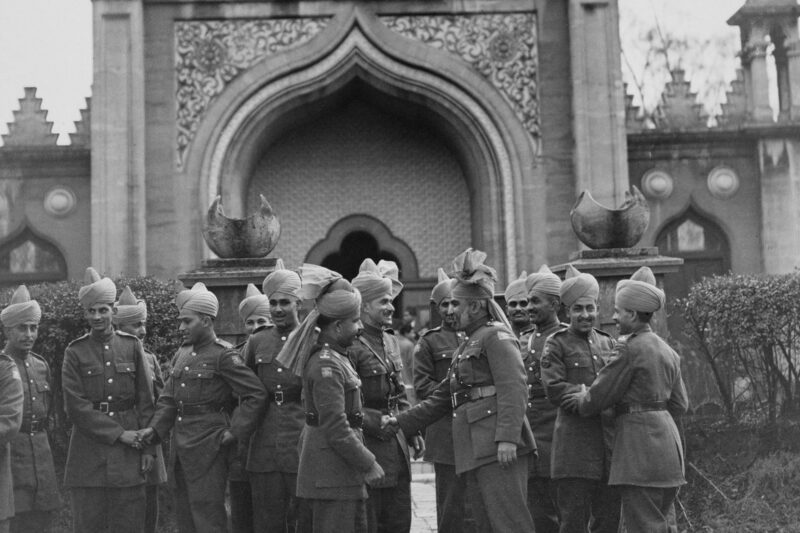Muslim soldiers played a vital role in liberating Europe from the Nazis
The valour and sacrifice of those who fought in the second world war holds many lessons for us now
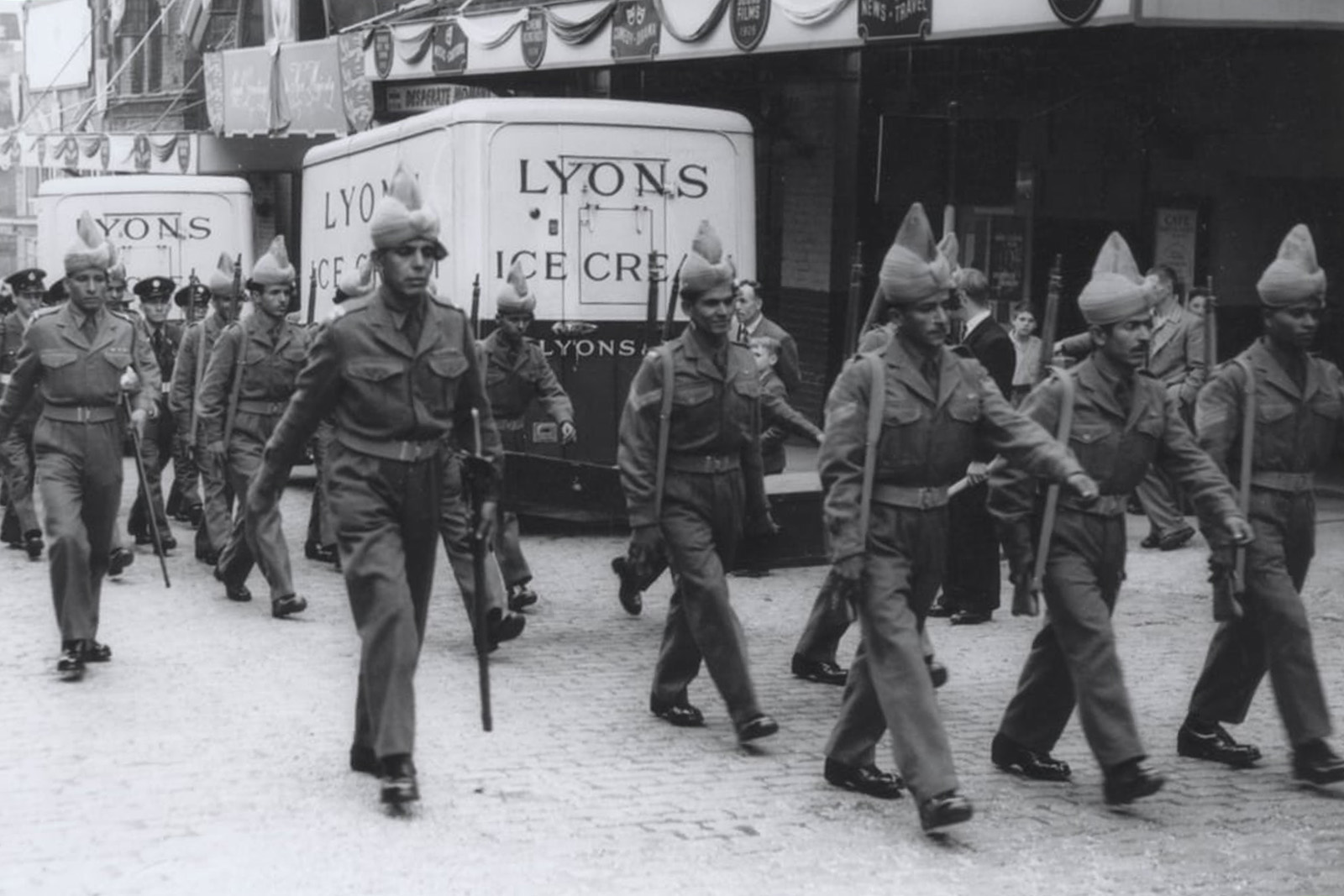
In Britain’s hour of need, standing alone against Nazi Germany in 1940, it was not the US that immediately came to the nation’s aid, but the fighting men of the Indian subcontinent.
They came in their millions, from every corner of British India — a vast territory that comprised modern-day India and Pakistan, which between them provided the majority of the troops, Bangladesh and Sri Lanka.
On 3 Sept 1939, Lord Linlithgow, the Viceroy of India, addressed the people of British India in a national radio broadcast: “We find ourselves at war with Germany today.”
As a colony, British India had no say in the matter, but Linlithgow’s decision drew a varied response from the country’s main political groups. The Indian Congress Party, led by Mahatma Gandhi, urged Britain to use restraint and non-violent methods to counter Adolf Hitler’s brutal expansionism. The Muslim League — albeit cautiously — supported Britain’s call for help.
The Punjab Unionist Party, led by Sikander Hayat Khan, meanwhile, offered the manpower and resources of pre-partition Punjab. At that time, the province was 55% Muslim. It became the main recruitment area for the British Indian Army, Britain’s largest overseas military force.
Between 1939 and 1945, troop numbers expanded from 189,000 to 2,500,000. Over a period of five years, more than 600,000 Muslims enlisted. Punjabi Muslim soldiers formed the largest single ethnic group within the army’s ranks.
Such was the importance of Muslim soldiers that Prime Minister Winston Churchill wrote, in a letter addressed to US President Franklin Roosevelt and dated 4 March 1942: “We must not on any account break with the Moslems [sic], who represent a hundred million people, and the main army elements on which we must rely upon for the immediate fighting.”
Muslim soldiers served and gave their lives on a number of key battle fronts, from the deserts of north Africa to the Middle East and the jungles of south-east Asia. In the book The Indian Army 1914-1947, military historian Ian Sumner states that “Muslim regiments provided 65% of Indian troops fighting in north Africa, Italy and Burma”.
In Tunisia, in May 1943, 275,000 German and Italian troops surrendered to Allied forces, marking the end of the north African war and Britain’s first major land victory over Hitler and Benito Mussolini’s fascist regimes.
The men of the 4th Indian Division had been present in north Africa from the outset of the war and more than 100,000 Indian soldiers helped to secure that victory.
In praise of their bravery Field Marshal Sir Archibald Wavell wrote: “The fame of this division will surely go down as one of the greatest fighting formations in military history … It represents the culmination of one of the finest warrior forces ever created, the old Indian Army, with its mixture of British and Indian units.”
Then came an attack on Italy itself, the chief aim of which was to draw German forces away from the planned D-Day landings, which took place on 6 June 1944 in Normandy, north-western France. Three Indian divisions, numbering around 60,000 battle-hardened men, were chosen for the task.
On 10 July 1943, Allied troops landed on and quickly liberated the island of Sicily, from where they launched an assault on mainland Europe through the toe of Italy. Thousands of German fighters were despatched — among them, the fearsome Fallschirmjäger airborne forces.
On 3 September, the Italians surrendered, leaving German forces to fight alone. Along with the skill of the German fighters, Italy’s mountainous terrain, fortified villages and numerous waterways formed the perfect defence, making the campaign a protracted, arduous and bloody one.
Throughout, Muslim soldiers fought with great bravery. River crossings posed by far the greatest danger and the Indians — particularly the 8th Indian Division — became known as the “river-crossing division”.
One account, from The Tiger Triumphs, a book published in 1946, reads: “The Punjabis plunged into the river, swam or waded across and found themselves amidst swarms of enemies, all very alive and full of fight. The Germans sprang from their pits and met the Indians at the waters edge. Men drowned in each other’s grasp.”
Perhaps the most famous example of heroism is that of Ali Haidar, a sepoy in the 6th battalion, 13th Frontier Force Rifles. On 9 April 1945, on the banks of the Senio river in northern Italy, he faced an onslaught of German machine guns.
Bullets ripped through the bodies of his comrades. Hit by a grenade and bleeding profusely, Haidar managed to wipe out two German machine gun teams, allowing the rest of his company to charge across the river.
After being treated for his wounds, Haidar went on to fight several more battles in Italy and retired when the war had ended. In October 1945 he received the Victoria Cross, the highest British decoration for bravery, from King George VI.
On 2 May 1945, the German army was defeated in Italy. Six days later, beaten on multiple fronts and in Germany itself, the Nazi regime announced its total unconditional surrender. That date was dubbed Victory in Europe Day, on which we now celebrate all those who helped to liberate the continent from fascism.
By the end of the second world war more than 87,000 Indian soldiers — of which about one-third were Muslim — had sacrificed their lives to help the Allies to victory.
The garrison cities of Rawalpindi, Jhelum and Attock in modern-day Pakistan provided the bulk of those men. Today communities with ties to those cities can be found across the UK, from London to Birmingham, Manchester, Bradford, Glasgow and Cardiff.
Their existence suggests that, in addition to Britain’s oft-cited call for postwar labour from its colonies, there could be another story behind the British Pakistani diaspora — one of the shared valour and sacrifice of white British and South Asian soldiers in the second world war and other conflicts.
That history, however, is largely ignored by the majority of academics, the media and the state itself. If that vital contribution of so many Muslim soldiers from South Asia and the greater Commonwealth were more widely known, it could help to create a deeper sense of common British identity, strengthen the bonds between us all and be used as a powerful and meaningful weapon against prejudice today.
 Newsletter
Newsletter



